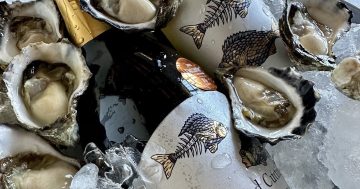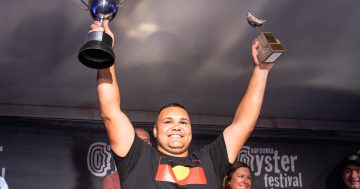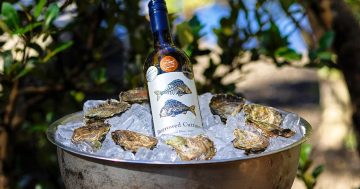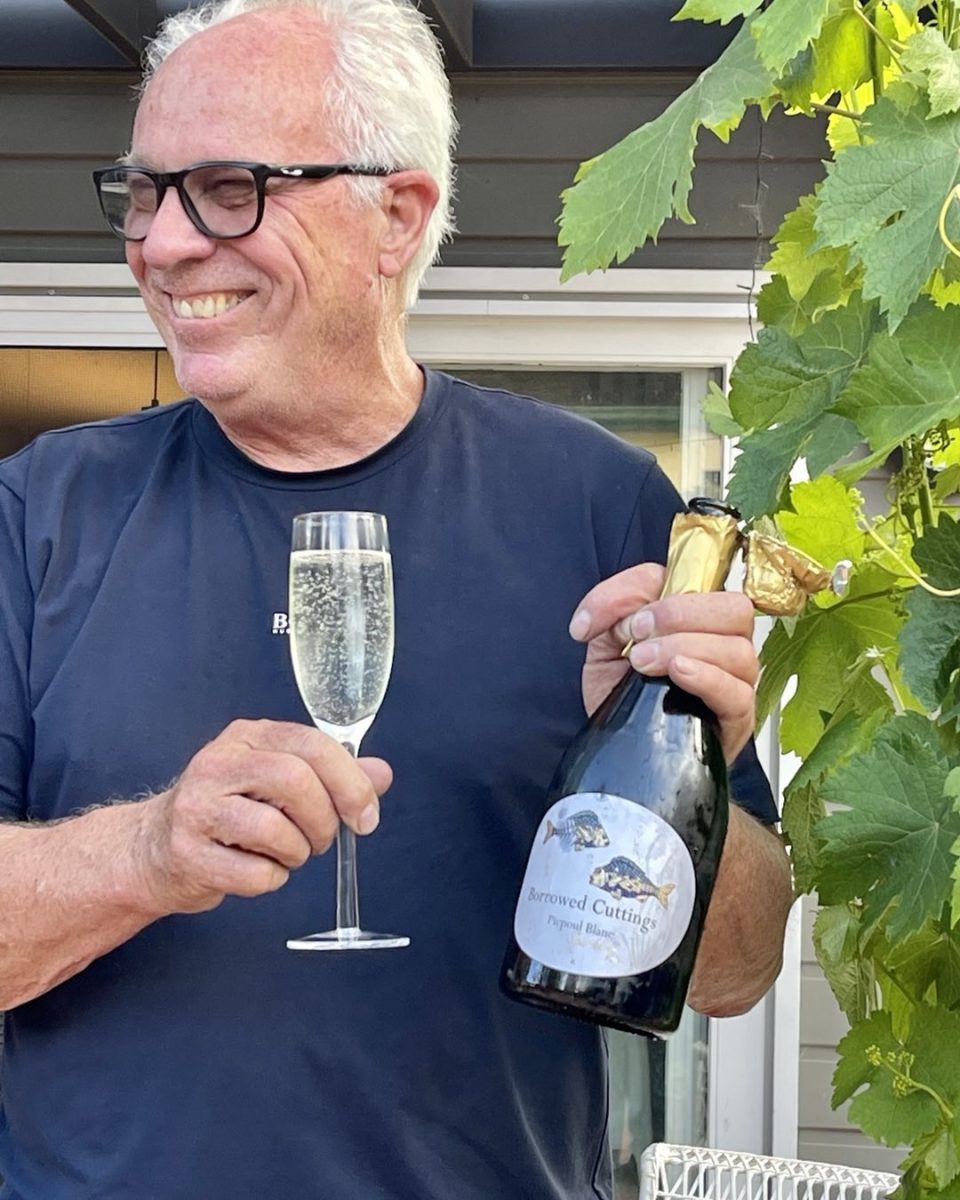
Steve Feletti is celebrating his latest win. Photo: David Rogers.
Serendipity seems to be a constant in Steve Feletti’s oyster and wine journey. He bought neglected oyster leases sight unseen, stumbled across the ideal restaurant to supply them to and chanced upon the perfect wine pairing in regional France.
They are just some of the happenstances that led to two Borrowed Cuttings’ picpoul wines winning medals at London’s Decanter, the world’s largest and most influential wine show.
In his quest for perfection, Steve broke with convention and applied every skill acquired earlier in his career.
Originally from central west NSW, after attending university in Canberra he lived in seven countries including Japan where he marketed grain to flour mills. One day in his Tokyo office Steve was daydreaming about going fishing and pondered buying an oyster lease in Batemans Bay where his parents had retired.
“Very foolishly, in 1994, I bought run-down oyster leases sight unseen,” he said.
Some four years later, Steve happened across The Boathouse on Black Wattle Bay in Sydney’s Glebe.
“I thought this is exactly the place I want to deal with,” he says.
Steve sent the restaurant a box of oysters overnight and immediately received a fax back: “Send more”.
“We supplied them for 21 years unbroken except when it rained,” he says.
Steve employed every marketing trick in the book and set new standards.
“The oysters went directly to the restaurant; we sold by the dozen and articulated the brand.”
Moonlight Co. has six oyster brands including the renowned Claire de Lune. He followed the French tradition of only supplying shuck-to-order restaurants. Word spread around chefs in Sydney, with Melbourne restaurants next to jump on board.
Then, every year for some 14 years, Steve and his wife visited a different oyster-growing area of France.
“France is the Vatican of oysters and French cuisine is UNESCO-protected so I wanted to see how they did everything.”
Steve paid little attention to what the waiter poured into their glasses at a modest cafe in Languedoc.
“I tried it and it blew my mind away,” Steve recalls.
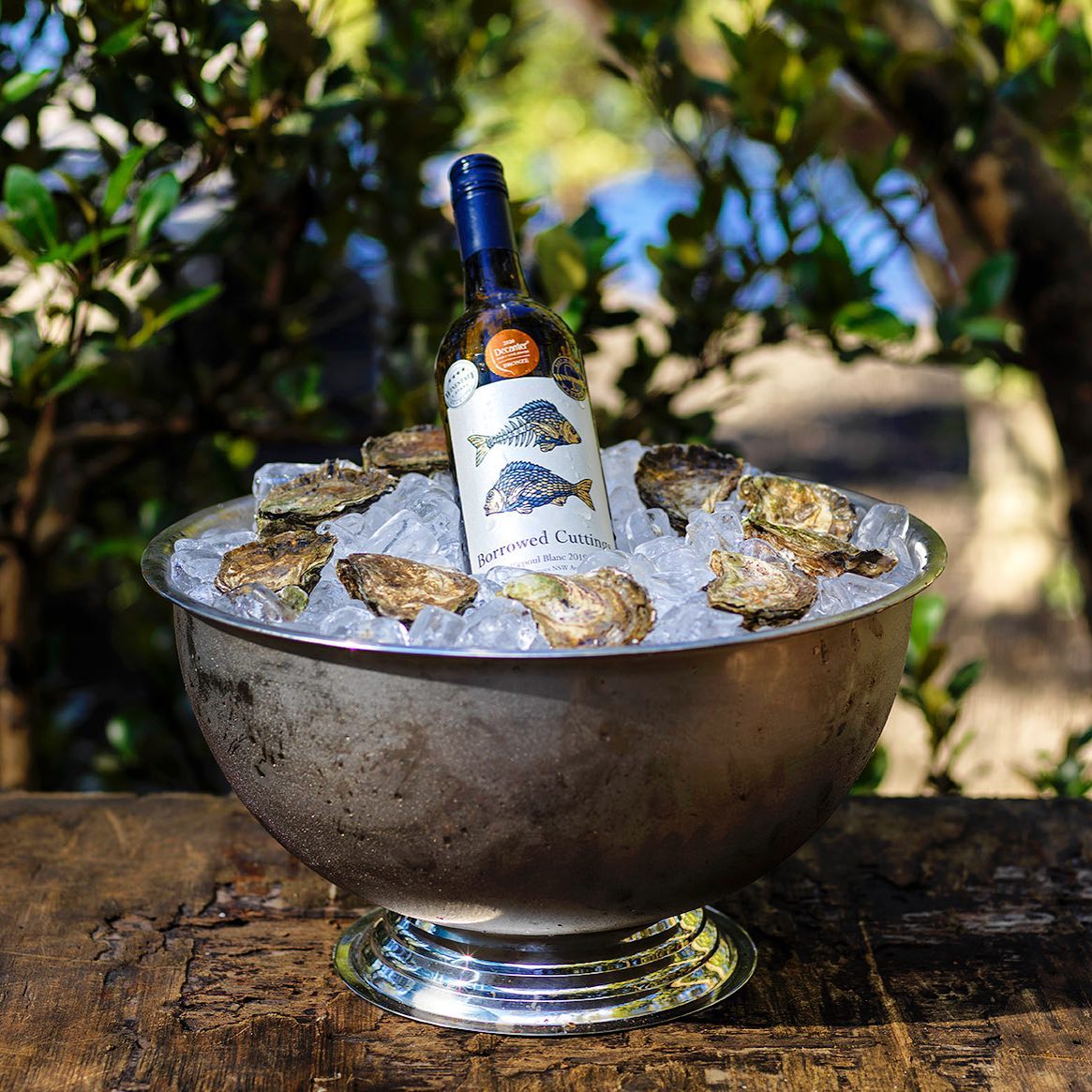
Wine and oysters, a winning combination. Photo: David Rogers.
He instantly resolved to get cuttings of the picpoul grape to grow on his wheat farm in Cowra.
A French professor friend in Canberra arranged for Steve to meet a leader of the picpoul community the following winter, deliberately in the pruning season.
With a quarantine permit and photos of his farm and oyster leases in hand, Steve met the picpoul grower at the vineyard.
“After much arm-twisting, he succumbed.
“He gave me seven cuttings at which point I elevated off the ground,” Steve says, positively glowing.
After three years in quarantine, two years in a cloning lab to produce a few hundred plants and acclimatising around Batemans Bay, the plants went to Cowra.
“They thrived until the drought, and we had no water.”
In a stroke of luck, the neighbouring vineyard had water and the oyster-loving vigneron was happy to oblige.
“It cost me a fortune in oyster gifts.”
The vigneron grows the grapes under contract given Steve lacks the know-how. Luck intervened again, as there was a winemaker in-situ.
Steve believes 60 percent of a wine’s quality depends on the skills of the winemaker.
“Antonio D’Onise is a very skilled young winemaker who at first shot produced compelling picpoul.”
Acclaimed wine writer and Decanter judge Andrew Jefford describes picpoul as a clever wine that evokes seaweed and oysters.
Steve puts picpoul’s affinity with oysters down to the prevailing northwest coastal breeze that scoots over the oyster infrastructure in the Languedoc lagoon.
“Every evening a misty shroud of fog develops, and I think the condensation drops onto the leaves of the picpoul.”
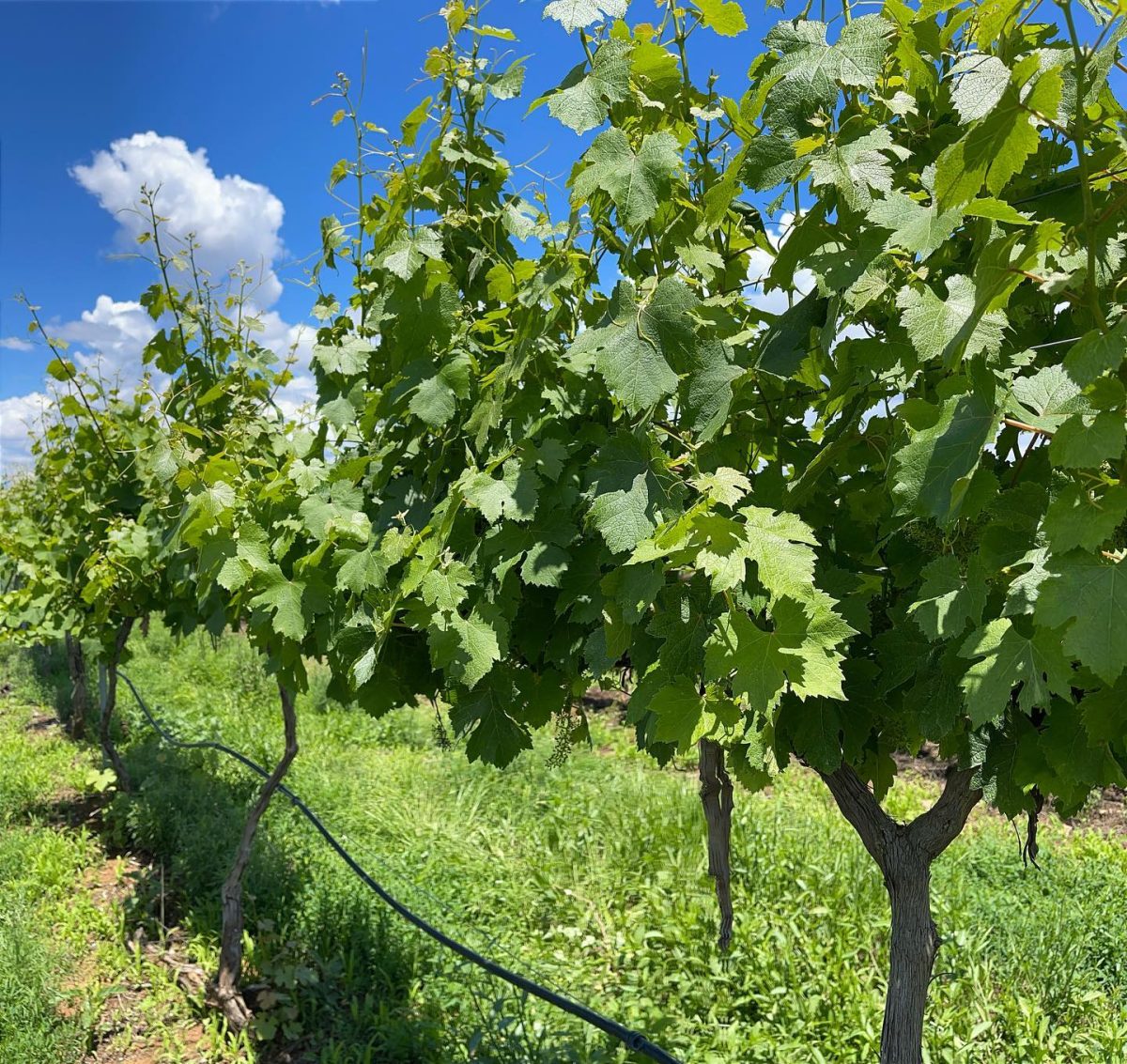
Soil, climate, and environment all contribute to a wine’s distinctive character. Photo: David Rogers.
The climate and soil of Languedoc are worlds apart from Cowra yet Borrowed Cuttings’ still picpoul outscored its French counterpart at Decanter.
Steve says their medals raised questions about terroir, the combination of factors, including soil, climate, and environment, that gives a wine its distinctive character.
“We have taken Old World vines, brought them to a new environment and produced this award-winning Australian picpoul.
“They have raised this quandary with wine experts, and I have yet to hear a credible explanation.”
You can try Borrowed Cuttings wines at the Narooma Oyster Festival on 3-4 May in Narooma.






